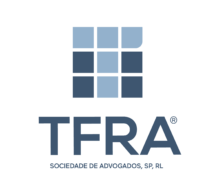It has been published in the past October 1st, the Decree-Law n. 79-A/2020, it establishes the exceptional and transitory regime of work reorganization and minimization of risks of transmission of COVID-19 disease infection within labor relations is foreseen.
Scope of application
The regime is applicable to:
i. Companies with 50 or more employees in the workplace, in the territorial areas where the epidemiological situation justifies it, defined by the Government through Resolution of the Council of Ministers;
ii. Pre-school education establishments from institutions in the social and solidarity sector that are part of the national network of pre-school education and to educational and training offers, both academic and non-academic, of basic and secondary education, taught in private and cooperative educational establishments of non-higher level, including private vocational schools;
Measures:
Organization of delayed schedules
The employer must organize the hours of entry and exit from the workplaces in a delayed manner, guaranteeing minimum breaks of 30 minutes, up to the limit of 1 hour between groups of employees.
2. Adoption of technical and organizational measures
The employer must adopt technical and organizational measures to guarantee the physical distance and protection of employees, namely:
- The establishment of stable work teams, so that contact between employees occurs only between employees of the same team or department;
- The rotation of rest breaks, including meals, between teams or departments, in order to safeguard the social distance between employees;
- The promotion of telework, whenever the nature of the activity allows it;
- The use of adequate personal protective equipment, in situations where physical distance is manifestly impracticable due to the nature of the activity.
3. Change of work schedules
For the purposes of applying the aforementioned measures, the employer may change the working hours up to a maximum limit of one hour, unless such change causes serious damage to the employee, after consulting the employees involved and the employees’ commission or, in the absence of such commission, the union or inter-union commission or with the union delegates, and must inform the employee of the change made at least 5 days prior to the beginning of its application.
For the purposes of the Decree-Law, it is considered a serious damage:
- the lack of collective passenger transport that allows working hours to be met due to the delay; and
- b) the need to provide urgent and essential assistance to the family.
This change must remain stable for minimum period of one week, not being possible for the employer to make more than one change per week.
The change of working hours carried out cannot imply the alteration of the maximum limits of the normal working period, daily and weekly, nor the alteration of the modality of work practiced by the employee (day to night and vice-versa).
Pregnant employees, women who have recently given birth or breastfeeding, minor employee, employee with reduced work capacity, with a disability or chronic illness, and workers with dependents under 12, or, regardless of age, with a disability or chronic illness, under the terms defined by the Labor Code, are exempted from working according to the new schedules set by the employer in terms referred above.
4. Temporary work and provision of services
The company that uses or is the final beneficiary of the services provided is responsible for ensuring the delayed timetable organization and the change of the work schedule with the necessary adaptations, to temporary employees and service providers who are providing activities for these entities.
The Decree-Law comes into force in October 6thand is effective until March 31st, 2021, without prejudice to the possibility of its extension.
TFRA shall update the information on this flash whenever justified. Please note that the information contained in this document is of a generic nature and does not exempt, therefore, the analysis of the specific case, nor the consultation of the official documentation and legislation in force at any time.

